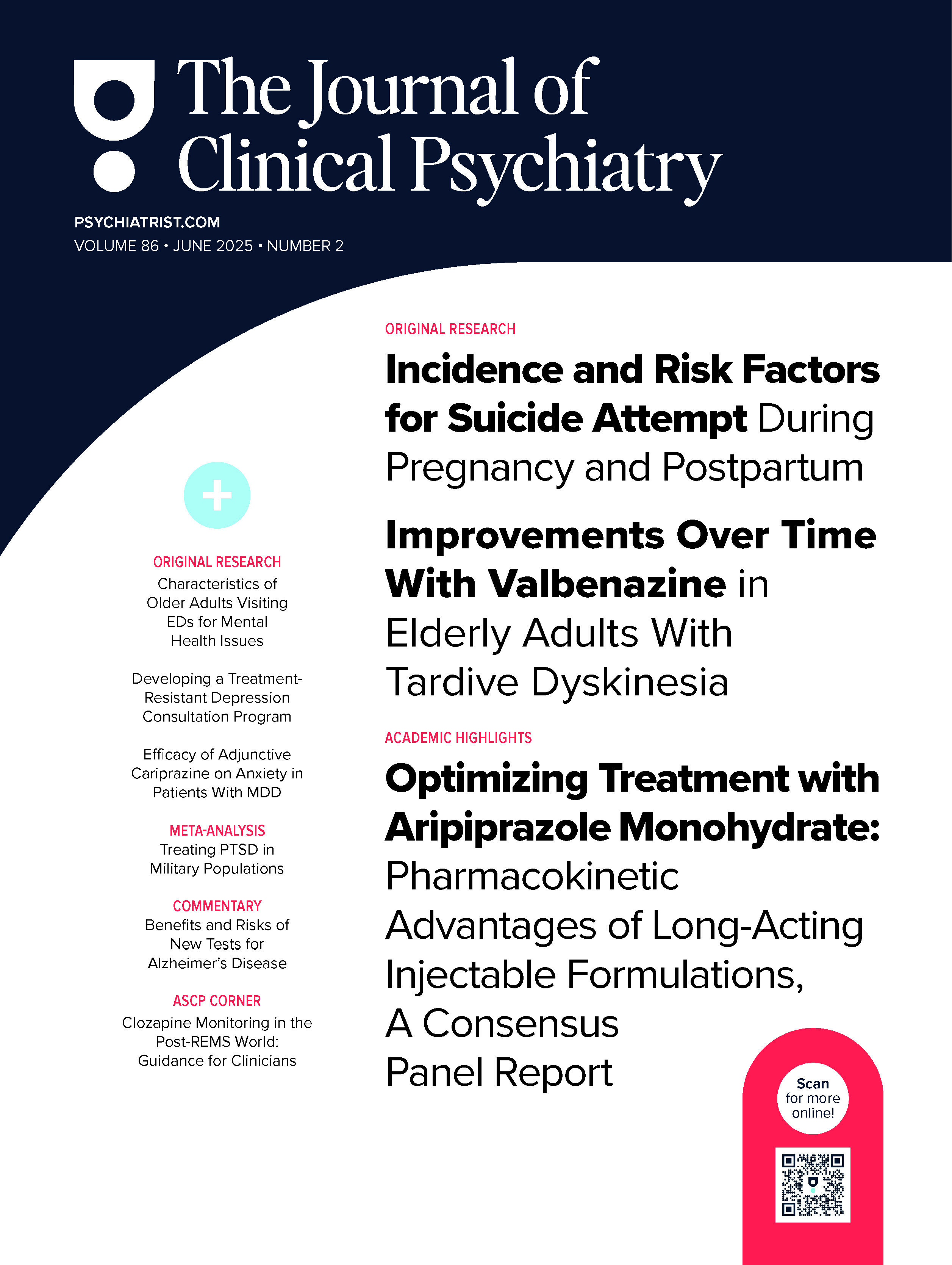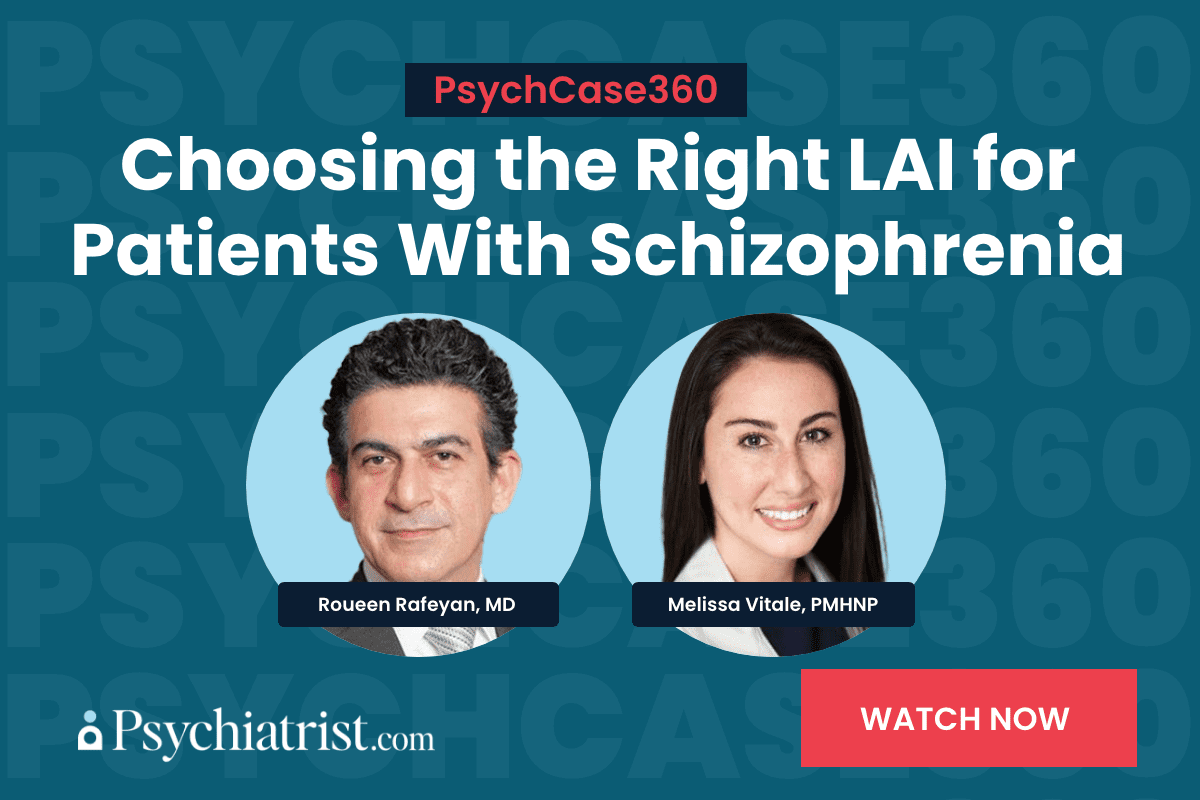Find more articles on this and other psychiatry and CNS topics:
The Journal of Clinical Psychiatry
The Primary Care Companion for CNS Disorders
The tendency for patients with bipolar II disorder to present with depressive symptoms rather than hypomanic symptoms can lead to a misdiagnosis of unipolar depression. These patients are often treated with antidepressants, which may be inappropriate for patients with bipolar II disorder due to the risk of inducing manic switching or rapid cycling. Misdiagnosis and mistreatment or nontreatment can lead to substantial psychosocial dysfunction, which may be best addressed in the context of psychotherapy. Psychotherapy in conjunction with pharmacotherapy has been shown to be an effective treatment for patients with bipolar II disorder, but more research is needed to better understand how treatment interventions should be used to optimize symptomatic and functional outcomes.
Vol 86 • 2025 • Number 2
Read the Current Issue
Original Research
Incidence and Risk Factors for Suicide Attempt During Pregnancy and Postpartum
Original Research
Valbenazine in Elderly Adults With Tardive Dyskinesia
Academic Highlights
Optimizing Treatment With Aripiprazole Monohydrate: Pharmacokinetic Advantages of Long-Acting Injectable Formulations, A Consensus Panel Report
Original Research
Older Adults Visiting Emergency Departments for Mental Health Issues:A CHIRPP Database Study
Consensus Statement
Developing a Treatment-Resistant Depression Consultation Program, Part I: Practical and Logistical Considerations
Brief Report

